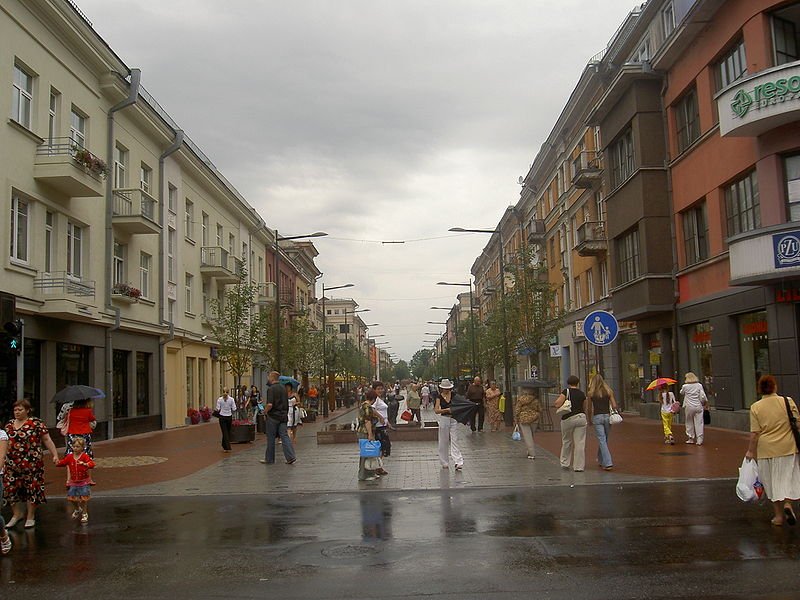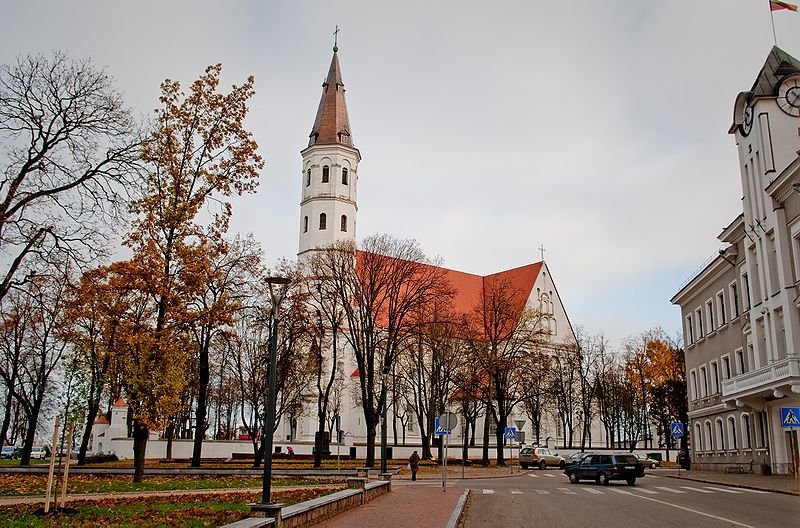 Šiauliai, Lithuania
Šiauliai, LithuaniaSource: https://commons.wikimedia.org/wiki/File:Vilniuská_ulice.jpg
Author: Dezidor

Šiauliai, located in northern Lithuania, is the fourth largest city in the country. It covers 81 sq km (31.3 sq mi) and has a population of 128,000 people. It is regarded as the unofficial capital of Northern Lithuania.
Šiauliai was first mentioned in 1236, in the chronicles describing the Battle of Saule, which took place not far from the city. In the early years, it was developed as a defence line against attacks staged by the Teutonic and Livonian Orders. By the 15th century, when such raids have stopped, Šiauliai developed into a farming community. It received city status in 1589.
By the 19th century, Šiauliai had grown into an important education and cultural center for Lithuania. The leather industry was a mainstay of its economy. The First World War brought massive destruction to its buildings. The years after the war was a difficult period for Šiauliai, which lost its market in Russia following independence.
 Šiauliai Cathedral
Šiauliai CathedralSource: https://commons.wikimedia.org/wiki/File:Siauliu_katedra_is_sono_2009.jpg
Author: ZwieRys

Until 1939, Šiauliai had a sizable Jewish community accounting for some 20% of its population. The Jews were systematically liquidated by the Nazis during World War II. After the war, the city was rebuilt with grim Soviet-style architecture. Only after Lithuania regained its independence that effort to rejuvenate the city was in place.
Visiting Šiauliai
There are trains and buses connecting Šiauliai with most major cities in Lithuania.Places of Interest in Šiauliai
- Aušra Museum
Founded in 1923, this is the oldest museum in Šiauliai. Named after the first newspaper in the Lithuanian language, it showcases the keepsakes of the nation of historical, archaeological and architectural value. - Bicycle Museum
Museum tracing the history of bicycles in Lithuania. - Cat Museum
Museum with some 10,000 pieces celebrating felines from around the world. It depicts cats of various types in a myriad of poses. - Cathedral of Saints Peter and Paul
Cathedral built in the Renaissance style in 1625 to replace the original in wood which has stood there since 1445. - Chaim Frenkel Villa
Villa in the Art Nouveau style, once occupied by a prominent Jewish family, today is opened to the public to provide a glimpse of Jewish life and customs in the early 20th century. - Laiptai Gallery
Gallery exhibiting works by local artists. - Sundial Square
Square built in 1986 to commemorate the 750th anniversay of the Battle of Saule in 1236. - Venclausky House
Privately managed art gallery housing some of the finest examples of local art.
 Latest updates on Penang Travel Tips
Latest updates on Penang Travel Tips
About this website

Dear visitor, thank you so much for reading this page. My name is Timothy Tye and my hobby is to find out about places, write about them and share the information with you on this website. I have been writing this site since 5 January 2003. Originally (from 2003 until 2009, the site was called AsiaExplorers. I changed the name to Penang Travel Tips in 2009, even though I describe more than just Penang but everywhere I go (I often need to tell people that "Penang Travel Tips" is not just information about Penang, but information written in Penang), especially places in Malaysia and Singapore, and in all the years since 2003, I have described over 20,000 places.
While I try my best to provide you information as accurate as I can get it to be, I do apologize for any errors and for outdated information which I am unaware. Nevertheless, I hope that what I have described here will be useful to you.
To get to know me better, do follow me on Facebook!
Copyright © 2003-2025 Timothy Tye. All Rights Reserved.

 Go Back
Go Back